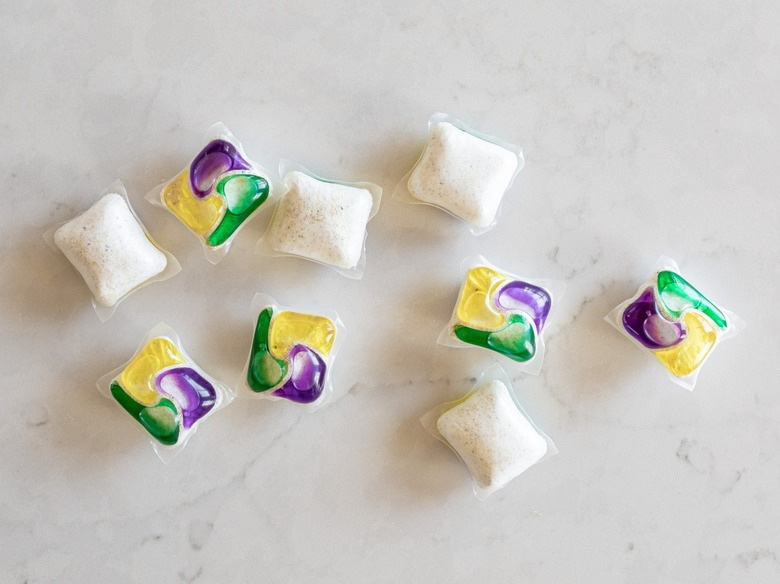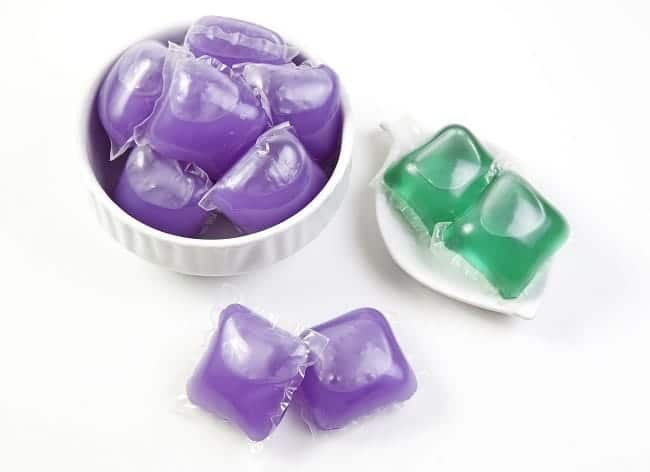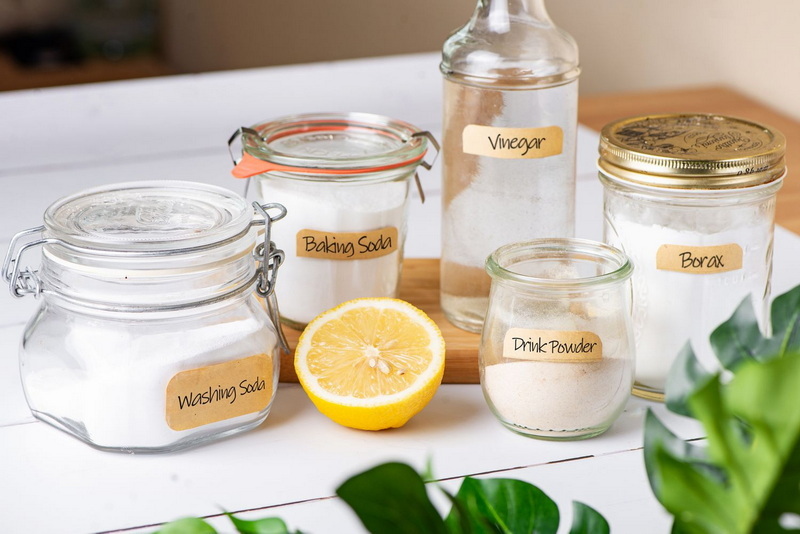Dongguan UFine Daily Chemical Co.,Ltd.
- All
- Product Name
- Product Keyword
- Product Model
- Product Summary
- Product Description
- Multi Field Search
Views: 222 Author: Tomorrow Publish Time: 10-15-2025 Origin: Site











Content Menu
● Understanding Dishwasher Pods
● What Are All-Liquid Dishwasher Pods?
● Popular Brands Offering All-Liquid Dishwasher Pods
>> Seventh Generation Free & Clear Gel Packs
>> Ecover Automatic Dishwasher Liquid Pods
● Benefits of Using All-Liquid Dishwasher Pods
● How Do All-Liquid Dishwasher Pods Work?
● Chemistry Behind All-Liquid Dishwasher Pods
● Considerations When Choosing All-Liquid Dishwasher Pods
● Environmental Impact of Liquid Dishwasher Pods
● Comparison of All-Liquid Pods and Other Types
● How to Use All-Liquid Dishwasher Pods Effectively
● Potential Drawbacks of All-Liquid Dishwasher Pods
● Ideal Users for All-Liquid Dishwasher Pods
● FAQ About All-Liquid Dishwasher Pods
>> 1. Are all-liquid dishwasher pods better than powder pods?
>> 2. Can all-liquid pods damage my dishwasher?
>> 3. Are all-liquid dishwasher pods safe for septic systems?
>> 4. How quickly do all-liquid pods dissolve?
>> 5. Can I use all-liquid pods with hard water?
When it comes to dishwasher pods, the composition matters significantly for their cleaning effectiveness and ease of use. One important category is all-liquid dishwasher pods, which have unique properties compared to powder or gel-capsule types. This article explores which dishwasher pods are all liquid, their benefits, how they work, and what consumers should consider when choosing them.

Dishwasher pods are a popular alternative to traditional powdered detergents because they offer convenience and pre-measured doses. These pods typically contain cleaning agents, enzymes, water softeners, and rinse aids compressed into small, easy-to-use packets. Pods come in various forms:
- Powder-based pods
- Gel-based pods
- Tablets (solid)
- Liquid-filled pods
The “all liquid” pods fall under the last category. They usually have a thin, water-soluble film that encases a liquid detergent, making them dissolve quickly in water and release their cleaning powers efficiently.
All-liquid dishwasher pods consist entirely of liquid detergent contained within a dissolvable pouch. Unlike powder or gel pods, these do not have any solid components inside. Instead, the formula is liquid, which allows for certain advantages in terms of cleaning and dispensing. These liquid pods are often made with concentrated surfactants, enzymes, and brighteners suspended in a stable liquid base.
These pods dissolve quickly once exposed to water, releasing the liquid detergent evenly throughout the wash cycle. They are especially useful in situations where rapid dissolution and uniform spread of detergent are desired.
Several brands manufacture dishwasher pods with all-liquid formulas. These products are favored for their convenience and efficiency.
Finish Quantum Ultra Gel pods contain a liquid formula that is designed to break down food residues and grease effectively. The liquid inside the pod dissolves fast, making them suitable for short wash cycles.
Cascade Platinum offers gel pacs that are essentially liquid inside a dissolvable film. Their formulation targets tough stains by combining liquid detergents and enzymes to tackle baked-on foods.
This brand offers pods that contain an all-liquid detergent with plant-based ingredients. These pods are designed for eco-conscious consumers looking for a liquid formula that is phosphate-free and gentle on the environment.
The Ecover pods are liquid-filled with biodegradable components inside a water-soluble pouch. Their liquid formulation helps achieve good cleaning results while being environmentally responsible.
There are several advantages to using dishwasher pods that contain only liquid detergent:
- Faster Dissolving: Liquid pods dissolve quicker than powder or solid pods, ensuring faster action on dishes.
- No Residue: All-liquid formulas minimize residue left behind because they disperse more completely.
- Effective on Grease: Liquid detergents often have superior grease-cutting abilities due to their surfactant concentration.
- Easy to Handle: These pods reduce the mess and dust exposure compared to powdered detergents.
- Consistent Cleaning: The liquid inside disperses evenly throughout the cycle, providing uniform cleaning results.
All-liquid pods work by utilizing surfactants and enzymes that break down food particles, grease, and starches on dishes. Once the pod dissolves in the dishwasher's water, the liquid detergent spreads throughout the dishwasher.
The liquid detergents are designed to lower surface tension, allowing water to wash away oils and soils effectively. Enzymes help digest proteins and starches, breaking down tough food residues. Some formulas also include rinse aids to prevent water spots and enhance drying.
The water-soluble film that encloses the pod dissolves within minutes, releasing the concentrated liquid inside at the optimal time during the wash cycle.
The active cleaning ingredients in all-liquid pods primarily consist of surfactants, enzymes, and builders. Surfactants reduce surface tension to emulsify grease and oils. Enzymes such as proteases, amylases, and lipases digest proteins, carbohydrates, and fats respectively.
Builders soften water by binding calcium and magnesium ions, improving detergent efficacy. In liquid pods, these ingredients are formulated into a stable aqueous solution that preserves enzyme activity until use. The film surrounding the liquid is usually made of polyvinyl alcohol (PVA), which dissolves rapidly at wash temperatures.

When selecting an all-liquid dishwasher pod, consider the following:
- Dishwasher Type: Some pods perform better in high-temperature or longer cycles. Check compatibility.
- Ingredients: Look for phosphate-free and biodegradable formulas if environmental safety is a concern.
- Allergies/Sensitivity: Liquid pods with fragrances or dyes may cause irritation for sensitive users.
- Water Hardness: Hard water areas may require pods with enhanced water softening components.
- Price and Availability: Liquid pods can be more expensive than powdered or solid versions.
An additional consideration is the storage of pods. Exposure to moisture before use can cause partial dissolution of the film, reducing efficacy. Therefore, pods should always be kept in airtight containers in a dry environment.
All-liquid pods often use concentrated ingredients, which can reduce packaging waste. However, they typically come wrapped in plastic-based water-soluble films which raise environmental concerns about microplastics.
Eco-conscious brands work to develop films made from fully biodegradable bioplastics and formulas free from phosphates and harsh chemicals. Consumers should check product labels to find environmentally friendly options that balance performance and sustainability.
Because the detergent is liquid and concentrated, less volume is needed per wash, reducing transport emissions. Furthermore, avoiding powders eliminates airborne dust, which can contribute to indoor pollution.
| Feature | All-Liquid Pods | Powder Pods | Gel Pods | Solid Tablets |
|---|---|---|---|---|
| Dissolving Speed | Very fast | Moderate | Fast | Slow |
| Cleaning Power | Excellent on grease and protein | Good on dirt and food stains | Good on grease and stains | Strong, long-lasting |
| Residue Risk | Low | Moderate | Moderate | Possible residue |
| Ease of Use | Very easy | May create dust | Easy | Easy |
| Environmental Impact | Depends on packaging | Can be eco-friendly | Moderate | Varies |
To maximize the benefits of all-liquid dishwasher pods, follow these tips:
- Place the pod in the detergent compartment of the dishwasher.
- Avoid moisture exposure before use to prevent premature dissolving.
- Use in the recommended cycle as per the product instructions.
- Do not overload the dishwasher; allow water and detergent flow.
- Use rinse aids if needed for spot-free drying.
Proper use ensures the pod dissolves fully and ingredients perform at peak efficiency. Some dishwasher models feature a specific compartment designed for pods to ensure effective release.
Despite their advantages, all-liquid pods have some limitations:
- Cost: They tend to be priced higher than powdered alternatives due to formulation and packaging.
- Packaging Waste: Though water-soluble films dissolve, concerns about microplastics have been raised depending on film type.
- Sensitivity to Moisture: Storage issues can arise if pods are kept in humid environments.
- Performance in Cold Water: Liquid pods usually perform best in warm or hot water cycles; cold cycles may affect cleaning power.
Weighing these factors against the benefits helps consumers decide if all-liquid pods fit their needs.
All-liquid pods are well suited for:
- Households seeking convenience and quick-dissolving detergent.
- Users with standard to sensitive skin who prefer less dust and irritants.
- Those with modern dishwashers that operate with warmer cycles.
- Environmentally conscious consumers who choose biodegradable formulas.
- People facing greasy or oily dishware requiring strong surfactants.
What dishwasher pods are all liquid? They are pods containing fully liquid detergent encapsulated in water-soluble films. Popular brands like Finish, Cascade, Seventh Generation, and Ecover offer these products, praised for fast dissolving, strong grease cleaning, and ease of use. When choosing all-liquid dishwasher pods, it is important to consider dishwasher type, ingredients, and environmental aspects. These pods represent an efficient and user-friendly option for modern dishwashing needs.

All-liquid pods dissolve faster and usually leave less residue, which can result in cleaner dishes, especially on greasy stains. However, powder pods can also be effective and sometimes better on specific soil types.
No, if used as directed, all-liquid pods are safe for dishwashers and often formulated to protect dishwasher components.
Many liquid pods from eco-friendly brands are safe for septic systems, but always check the product label for confirmation.
All-liquid pods typically dissolve within the first 5 to 10 minutes of the wash cycle once exposed to water.
Yes, but it is better to choose pods that contain water-softening ingredients or add a separate water softener in very hard water areas.